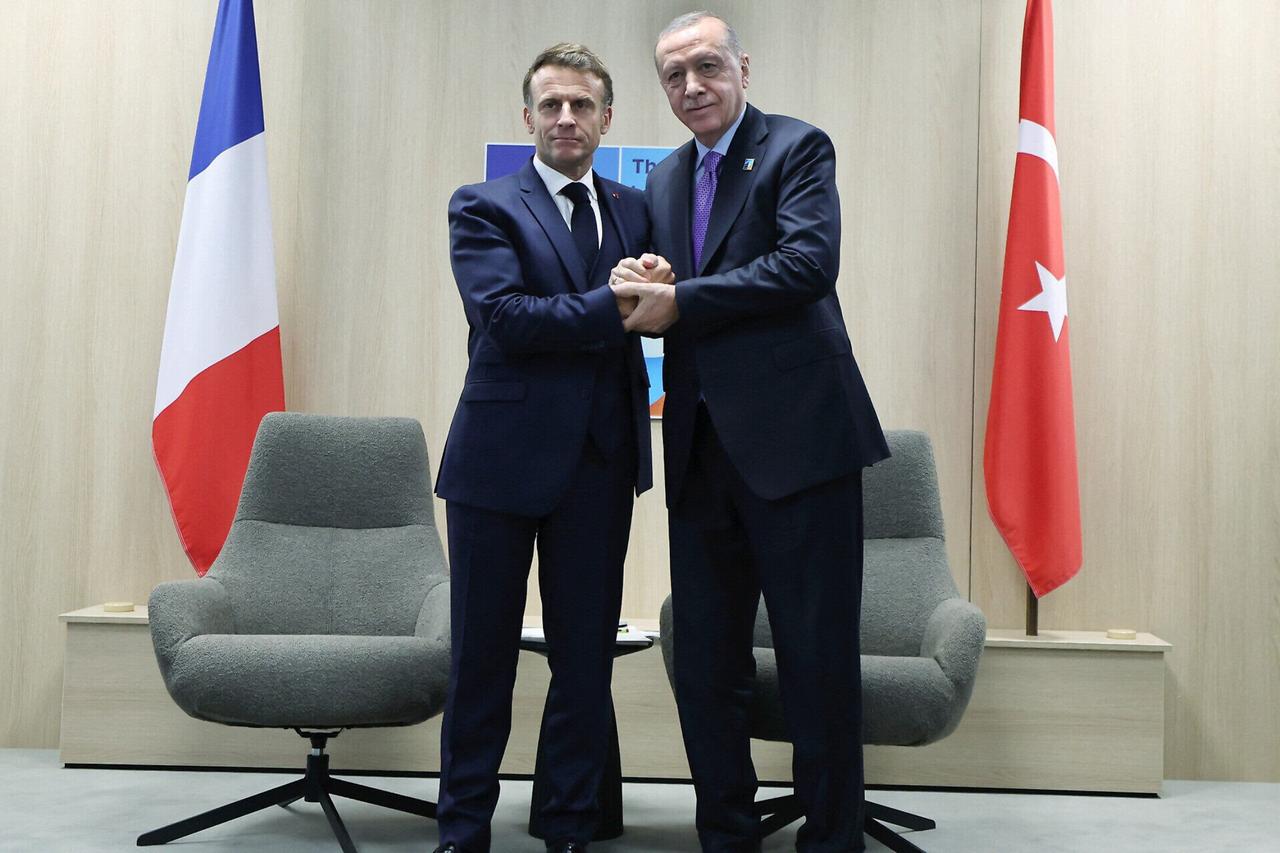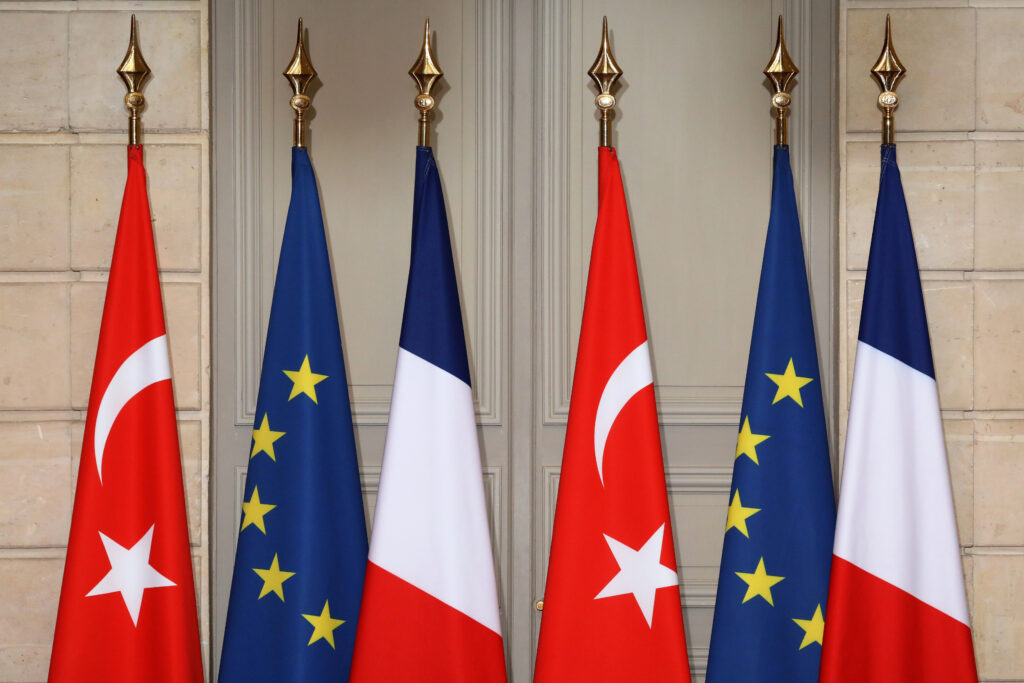
In Europe, Türkiye has long faced a divided landscape. Countries such as Poland, Spain, and Italy have maintained relatively cooperative ties with Ankara, while others—most notably Germany—have taken a more cautious or reserved approach. France and Greece stood firmly in the reluctant camp over the past decade, avoiding meaningful engagement with Türkiye.
Paris, in particular, regarded Ankara as a “strategic competitor.” Despite having no geographical base or permanent presence in the Eastern Mediterranean, France actively sought to shape the region’s affairs, driven largely by economic interests. The rivalry spilled across multiple theaters, from diplomacy to defense cooperation, and set the tone for years of strained relations.
This shift stems from the war in Ukraine, which, along with President Donald Trump’s approach, has prompted both Paris and Ankara to reassess their relationship. These events opened previously closed channels for dialogue. Additionally, France’s evolving stance on Palestine, although straining Franco-American relations, could actually draw Paris closer to Ankara, Israel’s regional rival. These factors together reinforce the argument that Ukraine offers a starting point for breaking down the traditional rivalry, making renewed cooperation possible.
On Aug. 20, French President Emmanuel Macron said Türkiye, alongside other European states, was prepared to contribute to “security operations in Ukraine.” The statement signaled more than a tactical adjustment.
For years, France and Türkiye were rivals across regions from Africa to the Mediterranean. The geopolitical map now forces the two strategically autonomous middle powers into a reluctant but notable rapprochement.
The shift is structural. Direct engagement between Macron and President Recep Tayyip Erdogan on issues ranging from Ukraine to the Caucasus, and from Palestine to Syria, is shaping new avenues for dialogue. Other areas can now be reassessed through the lens of compartmentalization and selective cooperation.
It would be naive to suggest that there is no structural rivalry between two powers with overlapping spheres of influence. Türkiye often criticizes France’s Islamophobic laws, its post-colonial activities, and the rise of the far-right and related democratic consequences, while France has alleged deficiencies in Turkish democracy for years.
However, the perception of threat didn't prompt them to explore limited cooperation over the years, until the U.S. sought a solution in Ukraine. Now that France is approaching Türkiye for limited cooperation, there is a good strategic test case that can serve as a starting point for other areas.
Ukraine stands out as the clearest and most immediate entry point for building cooperation and testing whether selective alignment is possible. Both France and Türkiye see benefits in supporting Kyiv: restraining Russia, securing trade and transport corridors, and expanding defense exports.
The defense industry figures are revealing. Between 2014–18 and 2019–23, France’s major arms exports grew by 47%, while Türkiye’s rose by 106%. Both sold arms to Ukraine, with Ankara surpassing Paris in actual deliveries in 2022.
This convergence comes at a time when EU-Türkiye relations are both highly relevant and fragile. The U.S. is increasingly perceived as an unreliable partner, while Russia remains a shared threat—from Ankara to Helsinki and London. In this context, Türkiye and the EU need one another more urgently than at any point in recent memory.
A key challenge is whether Ankara and Paris can distinguish between areas of conflict and those of convergence, or whether competition remains the dominant factor. Türkiye has started focusing on cooperation with Middle Eastern countries. For instance, the UAE, previously aligned with France against Türkiye in the Eastern Mediterranean, shifted to collaborate with Türkiye across sectors like energy and trade. In contrast, Paris and Ankara continue to outmaneuver each other in Washington, but Ukraine now offers a test case for compartmentalized cooperation.
Yet the list of contested or overlapping issues between Ankara and Paris remains extensive, ranging from competing influence in Africa, the Caucasus and Central Asia, and debates over the EU Customs Union and European Investment Bank, to defense, space, and security cooperation, European strategic autonomy, Eastern Mediterranean disputes, Cyprus and Greek maritime claims, nuclear energy projects, theology and laicite, the Syrian conflict, and migration management.
The list of contested and overlapping issues includes both vital areas where cooperation could begin quickly—such as coordination in the Caucasus, Customs Union modernization, and security initiatives—as well as complex issues like the Eastern Mediterranean disputes and Greek maritime claims.
For instance, previous collaboration on border security shows the utility of starting with manageable, high-priority topics. Success there could enable Ankara and Paris to address entrenched disputes that have defined their rivalry.

The wars in Gaza and Syria are accelerating the need for Franco-Turkish dialogue. On Aug. 21, Macron tweeted in Turkish after a phone call with Erdogan, noting that France and Türkiye would work closely ahead of the September U.N. conference in New York on reviving the two-state solution. Macron underlined the importance of a stability mission in Gaza and the relaunch of a political process on a two-state basis.
For Paris, moving toward recognition of Palestine is complicating relations with Washington. Yet it is simultaneously pulling France closer to Türkiye, which positions itself as a counterweight to Israel in the region. The timing overlaps with Ankara’s signing of a memorandum with the U.K. on Eurofighter Typhoon jets—a deal supported by Airbus, Leonardo, and BAE Systems—demonstrating how shifting alliances in the defense sector are shaping Europe’s security environment.
Syria adds another layer of complexity. Earlier this year, France secured control of Latakia port through a concession to a French company, exemplifying its growing economic footprint. Türkiye, emphasizing neighborhood stability, encourages cooperation with willing partners, including Paris. Macron’s recent messaging mentioned the Armenia-Azerbaijan peace process, offering a further example of overlapping priorities with Türkiye in the region.
It is worth noting that since the Turkish military incursion into northern Syria in 2019, which displaced the Assad regime, France has approved export licences on a case-by-case basis and no longer allows the sale of weapon systems. Nonetheless, Türkiye has shown a willingness to cooperate when advantageous.
The debate over European autonomy also shapes this rapprochement. France’s 2013 military operation in Mali required U.S. assistance to transport equipment. In 2022, the deployment of French troops to Romania also depended on American logistical support.
These examples highlight Europe’s enduring dependence on US capabilities. For Ankara and Paris, this reality underscores that cooperation is less a matter of choice than necessity.
The future of Franco-Turkish relations will depend on how Paris views Türkiye’s role in Ukraine and other theaters—as competition or as complementarity. For example, in Libya and West Africa, both countries have interests but lack the capacity to act alone, making pragmatic alignment possible if rivalry is set aside.
The path forward lies in compartmentalizing disputes while focusing on areas of parallel interest. With both powers navigating fragile EU relations, strained ties with Washington, and shared concerns over Russia, Gaza, and Syria, the incentives for cooperation are mounting. Yet the rivalry is structural, and any rapprochement will remain fragile, defined by necessity rather than trust.